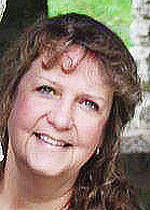There’s always something new to learn
Published 6:05 am Saturday, November 16, 2019
By Judith Victoria Hensley
Plain Thoughts
One of the greatest gifts parents or teachers can instill in their children is to foster learning and create in them a desire to become lifelong learners. We never get too old to learn a new skill or to enjoy new experiences. Some things we may hope we never have to learn, but I’ve found that in every situation there is some valuable bit of understanding to carry away.
People who stay active and love to learn seem to stay healthier and happier longer than those who do not, according to a variety of studies in the United States and in other countries. Ne learning keeps our brain function working at higher levels.
There are some people who feel that reaching the age of retirement means that they are free of any and all obligations toward work. Others retire from one career and can’t wait to acquire new skills and opportunities so they can embark on a brand new one.
The late poet laureate and beautiful writer, James Still, in his 90s still asked people what book they were reading and what they had learned that day. He believed a person should be doing both every day. He was disappointed in anyone who couldn’t answer.
Another beloved movie, TV script writer and book author, the late Earl Hamner Jr. inspired me in so many ways. In his 90s he still had a five-year plan and a ten-year plan. He encouraged me to do the same. He was always happiest in pursuit of a dream. With the fame of his TV series the Waltons, Falconcrest, and many other accomplishments, he could have retired from it all with fame and wealth many years earlier. Up until the last he was always happy in experiencing and learning new things.
Spending time with children is a great learning opportunity as an adult. They ask the funniest and most profound questions in their innocence. Answering those questions can make a grownup experience the world with a whole new perspective.
Some people wait until they are senior citizens to learn to paint, play an instrument, or learn a new language. Scientific studies show that such activities actually help form new connections in the brain and keep a person’s mental health in better shape than those who allow themselves to lose interest in everything.
My brother, Tim, started reading encyclopedias as a child for entertainment. That was long before multiple channels on TV, digital games, or cell phones. He loved learning about almost everything – the economy, wild places, exotic animals, foreign policy, latest scientific discoveries. His intelligence often intimidated me. Even when he died he was teaching himself Geometry and French. Why? Simply because he loved learning.
Children or adults should never be made to feel stupid because they ask questions about things they don’t know or understand. Every question is an opportunity to learn something new.
Our brains are designed to learn and to store knowledge. I’ve often heard the comment, “I can’t remember any more information. I’ll have to forget some things to make room for anything more.
According to Explorable.com, “The function of these memory stores is to filter the incredible amount of information we encounter every day. Without such a filter, our minds would quickly be overwhelmed by an unimaginable array of facts, figures, events and experiences. It appears that the more often information is encountered and repeated, the more likely it is to be stored in long term memory.”
Clinical Neurological Specials say that “The human brain’s memory capacity in the average adult can store trillions of bytes of information. In a Stanford Study, it was reported that the cerebral cortex alone has 125 trillion synapses. In another study, it was reported that 1 synapse can store 4.7 bits of information. Neurons are the cells which processes and transmits messages within the brain, and synapses are the bridges between neurons which carry the transmitted messages. Running the numbers – 125 trillion synapses – 4.7 bits/synapse, and about 1 trillion bytes equaling 1 TB (Terabyte).”
The human brain was designed (I believe by God) to have the capacity to learn new things and store that information throughout our lifetimes.
Reach longtime Enterprise columnist Judith Victoria Hensley at judith99@bellsouth.net or on Facebook. Check out her blog: One Step Beyond the Door.






